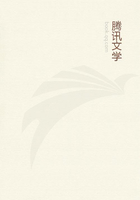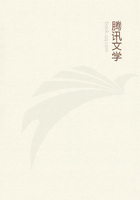(62)Now as such teaching was only set forth by the prophets in times of oppression, and was even then never laid down as a law; and as, on the other hand, Moses (who did not write in times of oppression, but - mark this - strove to found a well-ordered commonwealth), while condemning envy and hatred of one's neighbour, yet ordained that an eye should be given for an eye, it follows most clearly from these purely Scriptural grounds that this precept of Christ and Jeremiah concerning submission to injuries was only valid in places where justice is neglected, and in a time of oppression, but does not hold good in a well-ordered state.
(63)In a well-ordered state where justice is administered every one is bound, if he would be accounted just, to demand penalties before the judge (see Lev:1), not for the sake of vengeance (Lev. xix:17, 18), but in order to defend justice and his country's laws, and to prevent the wicked rejoicing in their wickedness. (64) All this is plainly in accordance with reason. (65) I might cite many other examples in the same manner, but I think the foregoing are sufficient to explain my meaning and the utility of this method, and this is all my present purpose. (66) Hitherto we have only shown how to investigate those passages of Scripture which treat of practical conduct, and which, therefore, are more easily examined, for onsuch subjects there was never really any controversy among the writers of the Bible.
(67)The purely speculative passages cannot be so easily, traced to their real meaning: the way becomes narrower, for as the prophets differed in matters speculative among themselves, and the narratives are in great measure adapted to the prejudices of each age, we must not, on any, account infer the intention of one prophet from clearer passages in the writings of another; nor must we so explain his meaning, unless it is perfectly plain that the two prophets were at one in the matter.
(68)How we are to arrive at the intention of the prophets in such cases I will briefly explain. (69) Here, too, we must begin from the most universal proposition, inquiring first from the most clear Scriptural statements what is the nature of prophecy or revelation, and wherein does it consist; then we must proceed to miracles, and so on to whatever is most general till we come to the opinions of a particular prophet, and, at last, to the meaning of a particular revelation, prophecy, history, or miracle. (70) We have already pointed out that great caution is necessary not to confound the mind of a prophet or historian with the mind of the Holy Spirit and the truth of the matter; therefore I need not dwell further on the subject. (71) I would, however, here remark concerning the meaning of revelation, that the present method only teaches us what the prophets really saw or heard, not what they desired to signify or represent by symbols. (72) The latter may be guessed at but cannot be inferred with certainty from Scriptural premises.
(73) We have thus shown the plan for interpreting Scripture, and have, at the same time, demonstrated that it is the one and surest way of investigating its true meaning. (74) I am willing indeed to admit that those persons (if any such there be) would be more absolutely certainly right, who have received either a trustworthy tradition or an assurance from the prophets themselves, such as is claimed by the Pharisees; or who have a pontiff gifted with infallibility in the interpretation of Scripture, such as the Roman Catholics boast. (75) But as we can never be perfectly sure, either of such a tradition or of the authority of the pontiff, we cannot found any certain conclusion on either: the one is denied by the oldest sect ofChristians, the other by the oldest sect of Jews. (76) Indeed, if we consider the series of years (to mention no other point) accepted by the Pharisees from their Rabbis, during which time they say they have handed down the tradition from Moses, we shall find that it is not correct, as I show elsewhere. (77) Therefore such a tradition should be received with extreme suspicion; and although, according to our method, we are bound to consider as uncorrupted the tradition of the Jews, namely, the meaning of the Hebrew words which we received from them, we may accept the latter while retaining our doubts about the former.
(78) No one has ever been able to change the meaning of a word in ordinary use, though many have changed the meaning of a particular sentence. (79) Such a proceeding would be most difficult; for whoever attempted to change the meaning of a word, would be compelled, at the same time, to explain all the authors who employed it, each according to his temperament and intention, or else, with consummate cunning, to falsify them.
(80)Further, the masses and the learned alike preserve language, but it is only the learned who preserve the meaning of particular sentences and books: thus, we may easily imagine that the learned having a very rare book in their power, might change or corrupt the meaning of a sentence in it, but they could not alter the signification of the words; moreover, if anyone wanted to change the meaning of a common word he would not be able to keep up the change among posterity, or in common parlance or writing.
(81)For these and such-like reasons we may readily conclude that it would never enter into the mind of anyone to corrupt a language, though the intention of a writer may often have been falsified by changing his phrases or interpreting them amiss. (82) As then our method (based on the principle that the knowledge of Scripture must be sought from itself alone) is the sole true one, we must evidently renounce any knowledge which it cannot furnish for the complete understanding of Scripture. (83) I will now point out its difficulties and shortcomings, which prevent our gaining a complete and assured knowledge of the Sacred Text.















